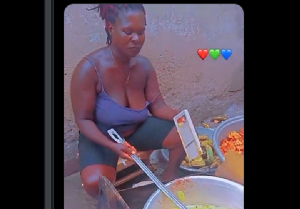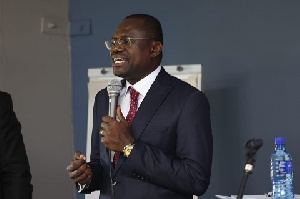christopher opoku
These are hard times indeed for former league champions Kumasi Asante Kotoko. Four matches at the Baba Yara Sports Stadium, no wins, no draws and all losses within the space of one month. After yesterday’s defeat to Heart of Lions at the Ohene Djan Sports Stadium, questions are being asked about what is wrong with the club, but a comprehensive look at the happenings at the club over the last 10 years gives a clue as to why things are currently not happening for Kotoko on the field of play.
Now don’t get me wrong; I do not think that four straight losses on home soil means that there is real trouble brewing in Kotoko, but without a shadow of doubt, clearly there is a mini-crisis at the Kumasi-based club, and perhaps it is time for a microscopic look to be taken at certain problems at Kotoko and perhaps, some suggestions as to how some problems can be solved.
Over the last 10 years, this is the roster of coaches that have handled Kotoko; Ebo Mends, Christopher Dake, Ernst Middendorf, Ian Porterfield, Ralf Zumdick, Abdul Razak, Hans Kodric, Hans Dieter Schmidt, Abdul Karim Zito, E.K Afranie, Telat Uzum, Bashiru Hayford, Morris Cooreman, Isaac Boateng, Herbert Addo. That’s a total of 15 head coaches in the last 10 years. At the moment, Addo himself has absented himself from Kotoko’s bench because according to reliable reports, he is unhappy that Kotoko is unwilling to meet his demands as per contract details and reliable sources close to the Kumasi-based club told this writer that Kotoko at the moment are going through a financial crisis; credit crunch, whatever you may call it and so that makes it almost impossible for the club to meet the demands of the experienced coach. Now then, we immediately identify two problems; instability as far as the technical team is concerned and lack of cash. I then shudder; Kotoko without cash? What on earth is going on?
I will begin by stating categorically that Asante Kotoko, being arguably the best supported club in terms of numbers, is a sitting gold mine, but unfortunately no management team over the years has managed to tap effectively into the Kotoko brand and make money for the club as per marketing, proper merchandising and the inability of management to educate the club’s massive following that as much as they require instant results on the field, it is also important to put up structures which will not only see the club being run as a corporate concern, but see the club as a self-sustaining outfit that can cater for itself so that players will stay on with the club and Kotoko can reach the heights attained by African giants Al-Ahly.
Let’s examine the issues one-by-one. To be perfectly blunt and with no disrespect to the owners of the club, it has become increasingly clear that most of Kotoko’s management teams over the years have comprised of loyalists of the club with a little money to spare, rather than administrative and economic experts who will run the club as a corporate concern. The only notable exceptions over the last 10 years were Herbert Mensah and Kwame Baah Nuako. True, there have been boards of directors which have had brilliant individuals but I am referring to day-to-day running of the club. The danger in appointing loyalists to management positions is that they tend to behave like the supporters they lead and instead of fashioning out well-thought out plans to raise funds for the club and educating the supporters on the need to exercise patience whilst proper club structures are built, they try to deliver short-term success by spending large sums of money to get perceived stars to get those results on the field.
Cast your mind back 20 years and in those days, Joe Debrah, Thomas Boakye, Isaac Kwakye and Michael Osei among others all graduated from Kotoko’s youth team into the senior team. At the time, the youth team, then known as Anokye Stars were a perfect breeding ground for Kotoko and as a result very little money was spent on purchasing players. The current Heart of Lions coach, Paa Kwesi Fabin, cut his teeth in coaching with the Kotoko Under 20 team and he can be credited with the development of players like Francis Akwaffo, Eric Nii Baah, Daniel Nii Adjei, Michael Ofosu Appiah, Patrick Duodu and Osei Kwame Junior among others. Fabin’s former role as a school coach with both Kumasi Anglican Secondary School and Osei Kyeretwie Secondary School afforded him the chance to constantly identify young talents and at the time, he had support from the then head coach, Ernst Middendorp. His exit from Kotoko coincided with big spending on players by the club.
The point I am making here is that had Kotoko’s youth policy and scouting been effectively continued there would have been no need for the club to make huge outlays of cash on players. Stephen Oduro grew up in Kumasi and is a self-confessed Kotoko fan, but Kotoko’s scouting network failed to spot him and he moved to join RTU in Tamale. Kotoko eventually had to bring him back for a then record 9000 Ghana Cedis. Alex Asamoah was released by Kotoko’s Under 20 team some years ago. After relative successes with both Berekum Arsenals and Ashanti Gold, Kotoko brought him back for a reported fee totalling 200,000 Ghana Cedis. Samad Oppong also grew up in Kumasi supporting Kotoko. Again, Kotoko failed to spot him and he joined King Faisal. After terrorising Kotoko’s defence on the last game of the just ended season, Kotoko shelled out 45,000 Ghana cedis to nab the striker. So the question is, is Kotoko only interested in spending huge sums of money on players, as against investing in an effective youth and scouting network? Obviously the former policy will leave the club cash-strapped and always relying on player sales and gate proceeds to foot its bill, thus living from hand-to-mouth. In this close season alone, Kotoko have spent an estimated total of about 600,000 Ghana cedis on new recruits alone. And now the word is the club is cash-strapped! Hardly an ideal scenario!
Again, the name Kotoko is, I dare say, one of the biggest football names in Africa and yet management teams, made up of mostly rich fans, have not been able to put a proper valuation on the club as per sponsorship. As a result, even though telecommunications giants like MTN and TIGO have sponsored the club, the quantum of sponsorship is clearly not up to what the club is worth because the management teams sometimes do not position themselves in a way to strengthen their bargaining power. All they are interested in is that they are getting some extra money and the policy of buying players continues with the hope of selling other players. Thus, there is no pragmatic plan in place to secure facilities like a stadium and a club house for the club. I am happy to note however that the club, after a very long time, are close to securing their own training pitches at Adako-Jachie, but money in Kotoko is always for buying players. There is also no plan for monitoring sales of Kotoko paraphernalia and as such, street hawkers are selling such items with impunity without the club’s consent and Kotoko gets nothing from such sales and does nothing about it as well.
The coaching instability at the club is as a result of pressure from supporters, who want instant success, no doubt fuelled by information of Kotoko’s past glory from an increasingly vibrant media. Coaches are not given time to properly bed in with the players they have got and most of the time, players are bought by the management without consulting the coach. When immediate success is not achieved, the coach either resigns or is sacked even though proper terms of references as per the coach’s long term performance targets, because the management members sacking them are behaving like the fans themselves. As former Liverpool managerial legend Bill Shankly said, ‘Football is the trinity of three groups of people; the players, the fans, and the coaching staff. The executives are just there to sign the cheques.’ Coaches, particularly the local ones also do not get the respect of certain management members because the said management members allegedly get involved in ‘ways and means’ to try to win matches and so do not believe that the coaches influence any positive result.
What needs to be done is for the owner of the club, Otumfuo Osei Tutu II to appoint a board of directors who will in turn appoint a substantive Chief Executive Officer who will in turn constitute his management team. Such appointments should be made without including rich fans of the club and rather should include administrative, financial and economic experts who can run Kotoko as a corporate entity, otherwise the current situation of ‘there is no money’ will translate into bad results on the field as is happening now. A word to the wise as we say is in .....
Sports Features of Friday, 11 September 2009
Source: Opoku, Christopher












